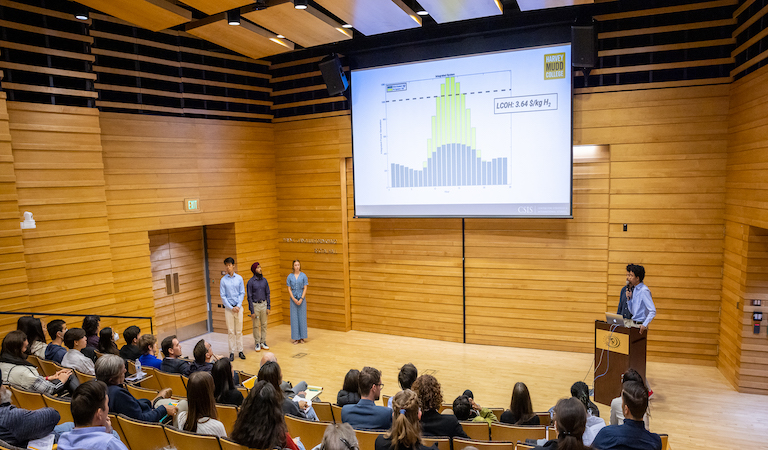Mathematics Clinic

Real-world problems that require imaginative, numerically-oriented problem solving are the special domain of Harvey Mudd College’s Mathematics Clinic. Like its counterpart in engineering, the Mathematics Clinic is an innovative approach to higher education that provides advanced students with the opportunity to expand and deepen their knowledge by confronting the challenge of the unknown.
Mathematics Clinic teams employ mathematical modeling, statistical analysis, and a whole host of formidable numerical approaches to concentrate on unsolved problems for industry and government. There is no ideal, or even typical Clinic project; the problems are as unique and diverse as the clients represented. The development of a statistical process control method for Teledyne Microelectronics, a sophisticated computer model of the spread of pollutants in groundwater for the Pomona Valley Municipal Water District, and the creation of a mathematical model to calculate the density and energy distribution of electrons and protons in the Van Allen belts for McDonnell Douglas are a few examples of studies conducted by Clinic teams.
Harvey Mudd College mathematicians are not afraid of technology; they are immersed in it. Students majoring in mathematics share the same rigorous instruction in science as do those majoring in engineering, chemistry, physics, biology, and computer science—the other majors offered at the college. They are an exceptionally bright, talented, and motivated group of students who ranked at the head of their high school classes and performed among the top two or three percent nationally on the college examination boards. They have earned Harvey Mudd College a reputation as one of the most selective colleges in the nation. The demanding curriculum they face requires that one-third of every student’s course work be in the humanities and social sciences. This unique emphasis is designed to educate scientists who will have a knowledge of the society in which they live and whose contributions after graduation reflect an understanding of society’s needs.
Choosing a Clinic Project
Clinic projects aren’t usually finalized until the end of the summer. Once they have been confirmed, the Clinic director finds faculty advisors for each project and contacts students to give them the opportunity to read through the project descriptions and rank their interest in the available projects.
If you have a particular interest area, you might be able to find a faculty member with similar interests and ask them if they’re considering advising a project.
Contact the Math Clinic Program
Math Clinic Director
Professor Talithia Williams
twilliams@hmc.edu
909.607.1262
IT Analyst
Melissa Hernandez-Alvarez
mhernandezalvarez@hmc.edu
909.607.3618